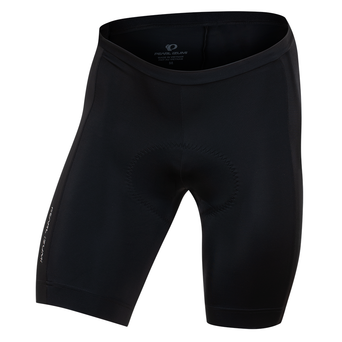Human athletic performance is a heck of a thing to devote one’s life to. There are myriad elements to consider as they inform our ability as functioning humans, let alone athletic specimens. As such, shouldn’t we require advanced degrees in human biology or physiology to even attempt to crack the codes of human performance? It’s understandable how one might think so, but consider this: human athletic performance is only partially influenced by physical training, biological health, nutrition, and equipment. The largest component to the question of what makes a human being, well, a human is the intangible quality of our consciousness.
From this lens, it’s clear that human athletic performance would also largely be influenced by our consciousness, beyond just choices regarding the physical processes that serve as the foundation for the choices we make in training and competition. For it is these moves, the mental moves, that turn a zombie on a machine into the force of human passion that we call a cyclist. And that is the piece that no amount of science or physical preparation can dominate.

As a professional athlete and a professional coach with a degree in philosophy, perhaps it’s no wonder that this is where my focus may fall in the wide realm of sport. But it’s served me well over my career, without fail. I won’t pretend that the physical attributes of this sport are not a major influence in smoothing my more philosophical perspective on training and competition. I will argue, however, relentlessly, that this other arm of sport, the more metaphysical piece of it, is what separates good athletes from great ones. And the only way to respect that view of athletic performance is to consider the human body as an ecosystem.
But most importantly, the irony of the metaphysical perspective I bring to sport is that it tends to lose touch with the basic truth that human beings are inextricably linked from the physical. That is, we are a part of this earth. And our bodies are ruled by a complex ecosystem of bacteria and resource management just as we might see in other life forms, conscious or otherwise. Recently, I’ve been consumed by the analogy of farming human performance just as we might see in organic, regenerative farming practices.
In modern mass-scale monoculture farming, it’s most common to see a high yield on a particular crop by focusing on a handful of nutrients and artificial inputs to control the natural confounding factors in the ecosystem in order to emphasize the end goal of maximizing efficiency. Unfortunately, as has been demonstrated time and time again with such farming practices, the long term result of these methods is complete system breakdown. That is to say, such intensive farming practices are simply not sustainable. But neither are they intended to be. Alternatively, organic, regenerative farming practices that focus on many of those same factors along with total system health in a natural way, allow for more measured returns but also far more sustainable returns and thus can allow a farmer to harvest crops from that sustainably managed land for years to come and also see increasing returns over time.

Just the same, it’s most common to focus on a handful of new, impactful, and entirely controllable factors to see large scale immediate gains in human performance (i.e., “sweet spot training” or drinking beet juice before workouts). But it’s also true that too much training in this way, or devoting too much focus on any combination of several impactful individual training protocols/biological hacks can produce diminishing returns in fairly short order. Simply put, the far more sustainable approach to seeing measured gains over a longer scale is a focus on the basic, diverse principles that govern the health of the entire human system. Rather than hitting the sweet spot and a handful of other intervals day-in, day-out, balancing intensity in training with low-intensity volume (at any scale) and true rest, produces a far more sustainable growth curve for athletes across the board. Combine that with a diverse, whole-food diet, and a balanced periodized training plan, and we begin to see the symphonic effects of the numerous components to healthy living leading to sustainable high performance.
Rather than surfing the latest trends in training or in diet, let’s just settle down and act like adults. Of course, we’d all like to see the most gains possible in short order. But let’s consider what our mothers and gym teachers always told us as we were growing up. There are no shortcuts in this life. Instead, let’s accept the universal truth that true, long-term, sustained growth can only take one trajectory. And that trajectory may well be slower than you were conditioned to expect from this life. But that’s also where the beauty lies in taking the time to encourage growth from a more holistic perspective. True growth takes time, but it also allows for sustained returns for years to come. What’s more, such an understanding has a soothing mental effect that allows us to continue on in our endeavors, regardless of individual upsets that stand in our way, instead of a handful of minor catastrophes turning our motivations into dust.
Human beings are made of this earth. Just as this earth is made of this earth. Even if our minds have tricked us into believing otherwise. So let’s not use our human consciousness to cloud these simple, if paradoxical truths in an attempt to make these things our own. Let’s use our human consciousness to use those factors to our benefit, but also recognize that such a feat requires us to step back and consider the system as a whole, respecting all the confounding and convergent physical factors that influence true growth on a larger scale. Only then can we refocus on the metaphysical aspects of sport that often make all the difference in getting to the top of that hill faster than we did before. And at the very minimum, let’s recognize that getting to the top of the hill at all is a beautiful thing.






